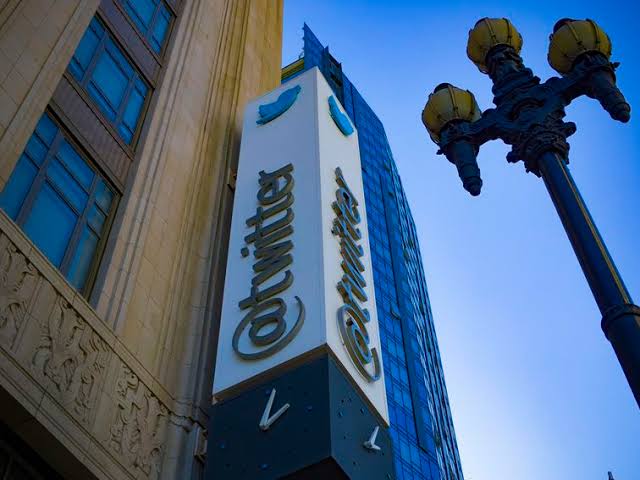Press Releases
Twitter partners with local organisations to support mental health work in South Africa, Nigeria and Kenya

Starting today in South Africa, Nigeria and Kenya, when someone searches for terms associated with
suicide or self-harm on Twitter, the top search result is a prompt encouraging them to reach out for
help.
The notification includes the contact details of a local non-profit organisation that provides critical
mental health resources to people in need: The South African Depression and Anxiety Group
(SADAG) in South Africa, Mentally Aware Nigeria Initiative (MANI) in Nigeria, and Amref Health Africa
in Kenya.
“The open Twitter community can be an important source of real-time support for anyone struggling
with thoughts of self-harm or suicide. Addressing mental health requires collaboration between all
stakeholders – public, private and not-for-profit. We’re pleased to partner with SADAG, MANI and
Amref Health Africa to encourage people in need to reach out for help, and are grateful for their
collaboration and support,” says Emmanuel Lubanzadio, Head of Public Policy for Sub-Saharan
Africa, Twitter.
Mentally Aware Nigeria Initiative (MANI), founded in 2016, is Nigeria’s most influential youth led
mental health network and the biggest provider of crisis support services for mental health in the
country, reaching over 25,000 people since the service was established in March 2017.
“Prior to this moment, we had focused on a sustained approach of mental health education to help
Twitter users in Nigeria identify as ‘spotters’ and share with us, Tweets that they come across which
suggest possible suicide risk or mental health crisis.
So far, this has been an effective enough
approach, but we would love to reach more users and on time too (so as not to miss any high risk
cases), and so we are excited to partner with Twitter to connect users in Nigeria needing support with
their mental health to our services in real time and on time,” according to Victor Ugo, Founder, MANI.
The South African Depression and Anxiety Group (SADAG) is at the forefront of patient advocacy,
education and de-stigmatisation of mental illness, carrying out its work through a 22 Helpline Call
Center, which includes the country’s only Suicide Crisis Helpline.
“Many people turn to social media to share their feelings of helplessness and hopelessness, and to be
able to give those people a resource to access help in a time of crisis is helpful to SADAG so we can
help more people who feel like suicide is the only option. If more people know how to contact us, we
can help and support more people and prevent more suicides,” comments Cassey Chambers,
Operations Director at SADAG.
Founded in 1957, Amref Health Africa, headquartered in Kenya, is the largest Africa based
International Non-Governmental Organisation (INGO) currently running programs in over 35 countries in Africa with lessons learnt over 60 years of engagement with governments, communities and
partners to increase sustainable health access in Africa.
Amref Health Africa also incorporates
programme development, fundraising, partnership, advocacy, monitoring and evaluation, and has
offices in Europe and North America as well as subsidiaries: Amref Flying Doctors, Amref Enterprises
and the Amref International University.
“Mental health continues to be a growing concern for Africa and increasingly, amongst young people
in particular, who across the region are already struggling to earn a livelihood in highly competitive
labour markets, now have to deal with a pandemic that’s largely affecting them.
Many will experience
psychological problems as they fail to realise their ambitions, and some will turn to substance misuse as a means of alleviating their frustration. Increased attention to mental health by governments,
researchers, and journals is therefore essential,” says Dr. Githinji Gitahi the Group CEO of Amref
Health Africa.
Twitter has a dedicated reporting form for people threatening suicide or self-harm. A specialised team
reviews these reports and upon receiving them, they will be in direct contact to let the individual know
someone who cares about them identified they might be at risk.
Twitter will provide online and hotline
resources and encourage them to seek help. Twitter also shares information on their Help Centre both
for people who may be experiencing thoughts of suicide and self-harm, and for people who are
concerned about others on Twitter.
Now in its third year, Twitter is proud to continue its partnership with the International Association for
Suicide Prevention (IASP) by launching a special emoji in the shape of an orange ribbon – the
international symbol for World Suicide Prevention Day.
The emoji will appear when people Tweet with
the hashtags #WorldSuicidePreventionDay, #WSPD, #WSPD2020, #SuicidePrevention through
September 25 and is activated in 23 languages.
The #ThereIsHelp notification service for mental health and suicide prevention is available for people
in 29 markets worldwide.






